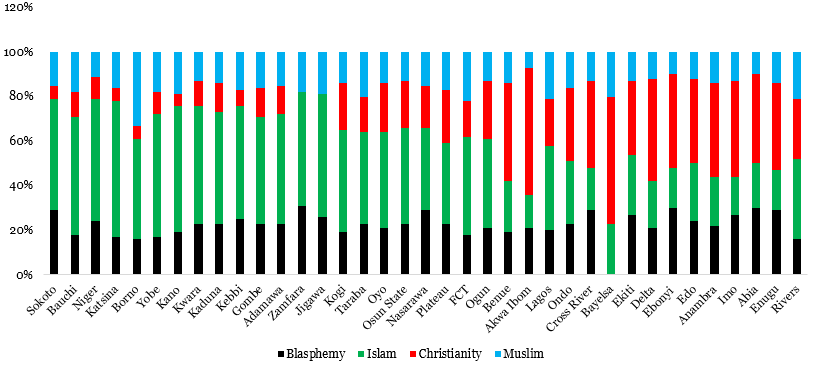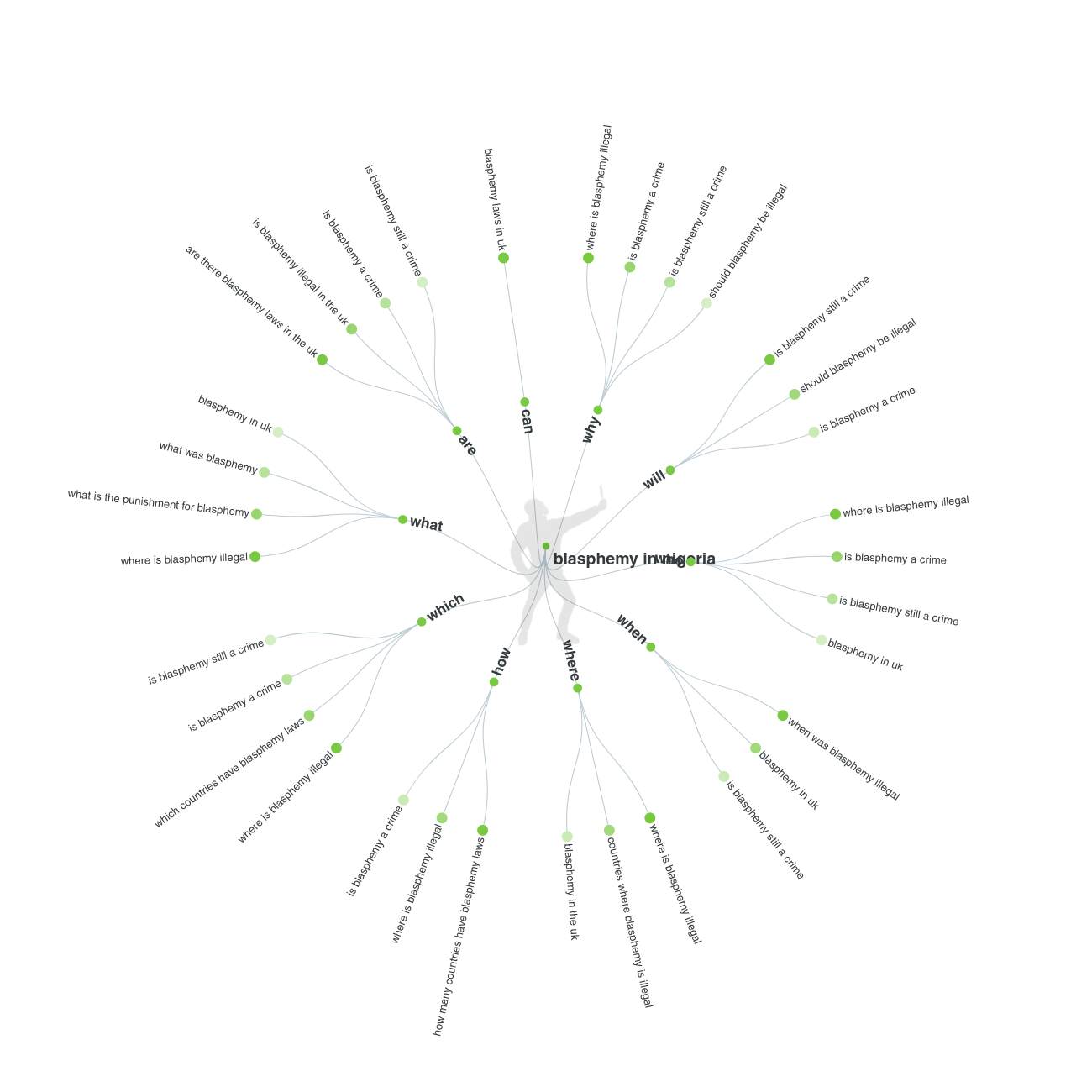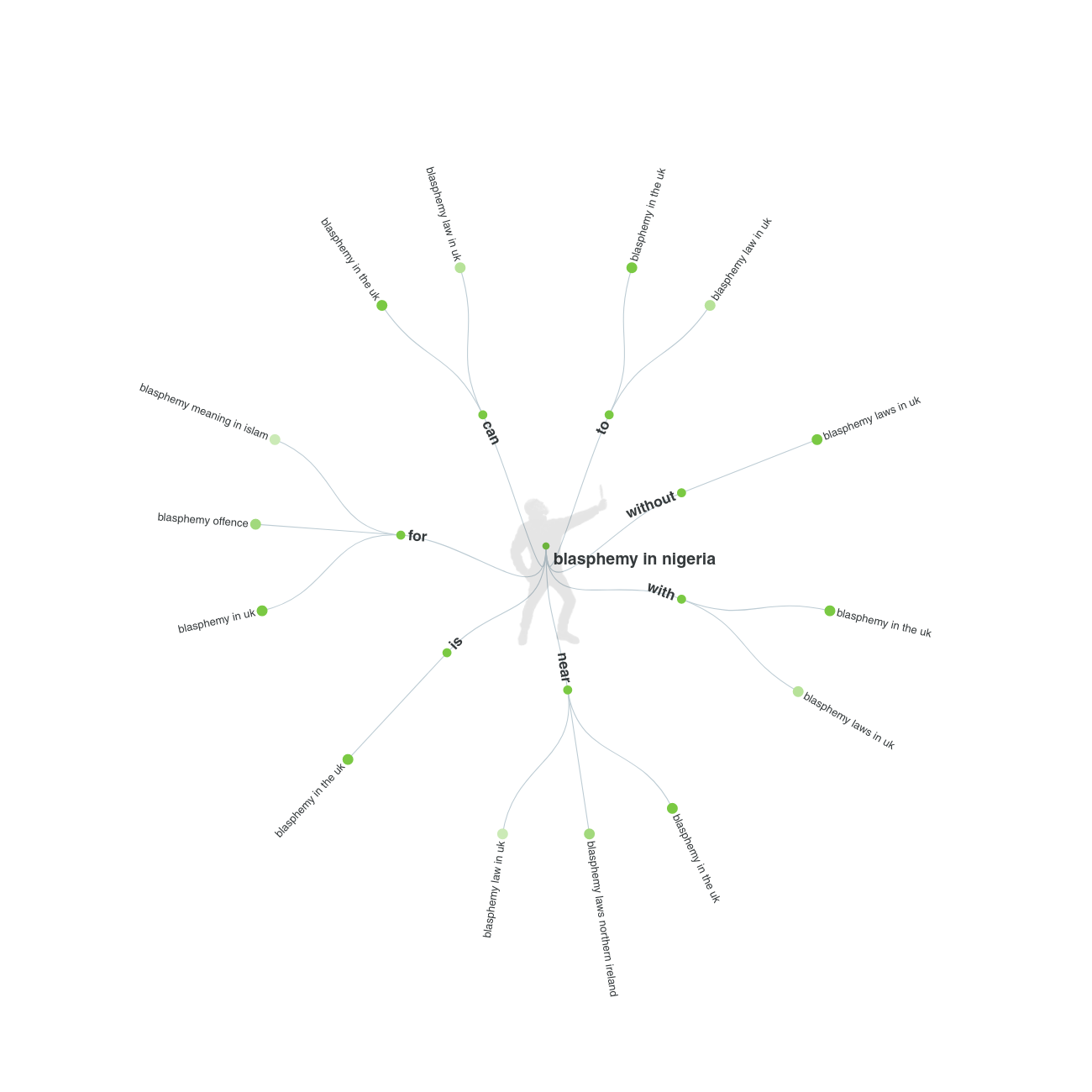
Nigerians continue to discuss Deborah Samuel Yakubu’s death as they seek better ways to live together peacefully despite their religious, ethnic, socioeconomic, and political affiliation divides. Our analyst mentioned in the earlier piece that if the remote reasons of unjust killings around the country are not discovered utilizing quantum approach, Deborah’s death will not be the last.
So far, the death debate has divided Nigerians into many groups, with members of each group using a variety of offensive and protective terms. Our analyst investigates what people have been searching on the Internet concerning the Sokoto incident in terms of Islam, Muslims, Christianity, and blasphemy. Our analyst focused on Nigerians’ use of various search engines, particularly Google, to figure out the three terms in the midst of Deborah’s Death.
Our analyst used Google trends, a Google product that normalizes people’s search interest over time, to figure out what Nigerians searched between May 8 and May 15, 2022. Users of the Google search engine conducted a total of 22,038 searches during this time period. According to this graph, individuals were more interested in learning about or comprehending Islam than Christianity, Muslims, or the bone of dispute, blasphemy. According to our findings, Islam accounted for 39.3 percent of all queries, with only a 2% difference between Christians (20.6%) and Muslims (20.8%). Over 19% of the searches were conducted with the goal of learning more about blasphemy.
Register for Tekedia Mini-MBA edition 19 (Feb 9 – May 2, 2026): big discounts for early bird.
Tekedia AI in Business Masterclass opens registrations.
Join Tekedia Capital Syndicate and co-invest in great global startups.
Register for Tekedia AI Lab: From Technical Design to Deployment (next edition begins Jan 24 2026).
When it came to learning more about blasphemy through related words, the majority of the searches were related to Sokoto Blasphemy, Blasphemy in Sokoto, Deborah, Prophet Muhammed (SAW) and Sokoto Blasphemy video. Within the need for understanding Islam, Blasphemy in Islam, what is blasphemy, punishment for blasphemy in Islam, Islamic ruling on blasphemy and blasphemy in hadith were predominantly searched. Christianity was largely understood through Christian girl killed in Sokoto, punishment for blasphemy in Christianity, blasphemy in Christianity and Islam while blasphemy in Islam, Prophet Muhammed and Jihad were employed for understanding Muslims.
Exhibit 1: Public Interest in Blasphemy, Islam, Christianity and Muslim

Given that users rarely utilize the question strategy to query information from Google search, our analyst looked into The Authentic Answer, a technology that converts search interest into questions or explicitly looks for implicit questions made by search engine users. According to a scan of The Authentic Answer’s global database on the incident, 33 important questions were posed via search engines (see Exhibit 2). People have inquired about whether blasphemy is a crime, how many countries have blasphemy laws, whether blasphemy is not a crime, whether blasphemy is a crime in Nigeria, whether blasphemy is a crime in Nigeria among others.
Exhibit 2: The Key Questions asked globally

Exhibit 3: Prepositions used globally

Our analyst concludes that the users must have received varied replies to their questions based on their search habits and interests. The answers must have come from various sources, each with its own agenda. Some organisations and individuals may wish to cause havoc by crafting propaganda and provocative information to align with the public’s interest in comprehending the occurrence in relation to important players, regions, and the personalities of specific persons. While mentioned in the last post, as public conversation on the incident on digital platforms continues, stakeholders at all levels must rise to the challenge of establishing systems that check the transmission of erroneous and misleading information.



